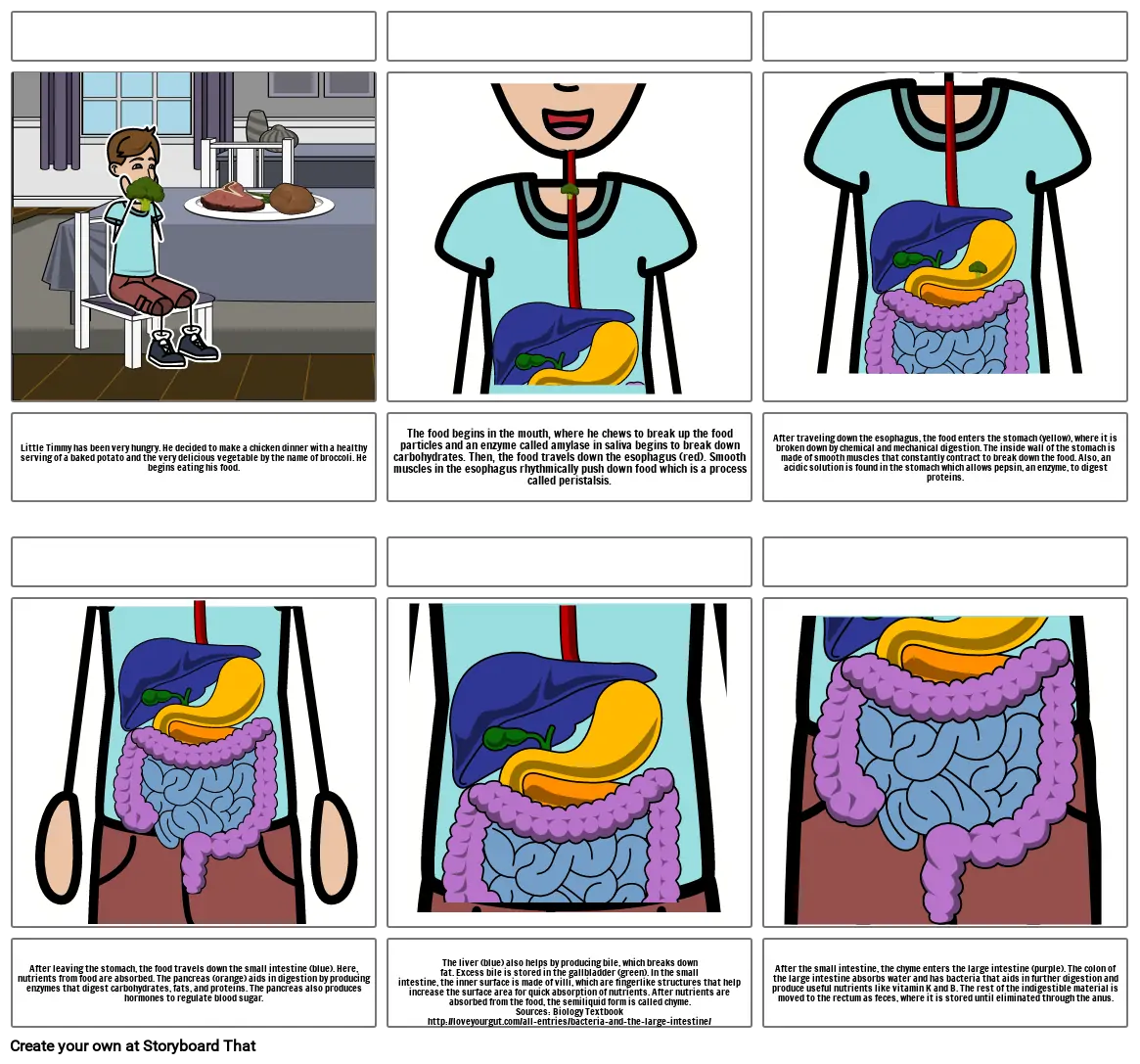Digestive System

Snemalna Knjiga Besedilo
- Little Timmy has been very hungry. He decided to make a chicken dinner with a healthy serving of a baked potato and the very delicious vegetable by the name of broccoli. He begins eating his food.
- The food begins in the mouth, where he chews to break up the food particles and an enzyme called amylase in saliva begins to break down carbohydrates. Then, the food travels down the esophagus (red). Smooth muscles in the esophagus rhythmically push down food which is a process called peristalsis.
- After traveling down the esophagus, the food enters the stomach (yellow), where it is broken down by chemical and mechanical digestion. The inside wall of the stomach is made of smooth muscles that constantly contract to break down the food. Also, an acidic solution is found in the stomach which allows pepsin, an enzyme, to digest proteins.
- After leaving the stomach, the food travels down the small intestine (blue). Here, nutrients from food are absorbed. The pancreas (orange) aids in digestion by producing enzymes that digest carbohydrates, fats, and proteins. The pancreas also produces hormones to regulate blood sugar.
- The liver (blue) also helps by producing bile, which breaks down fat. Excess bile is stored in the gallbladder (green). In the smallintestine, the inner surface is made of villi, which are fingerlike structures that help increase the surface area for quick absorption of nutrients. After nutrients are absorbed from the food, the semiliquid form is called chyme.Sources: Biology Textbookhttp://loveyourgut.com/all-entries/bacteria-and-the-large-intestine/
- After the small intestine, the chyme enters the large intestine (purple). The colon of the large intestine absorbs water and has bacteria that aids in further digestion and produce useful nutrients like vitamin K and B. The rest of the indigestible material is moved to the rectum as feces, where it is stored until eliminated through the anus.
Ustvarjenih več kot 30 milijonov snemalnih knjig

